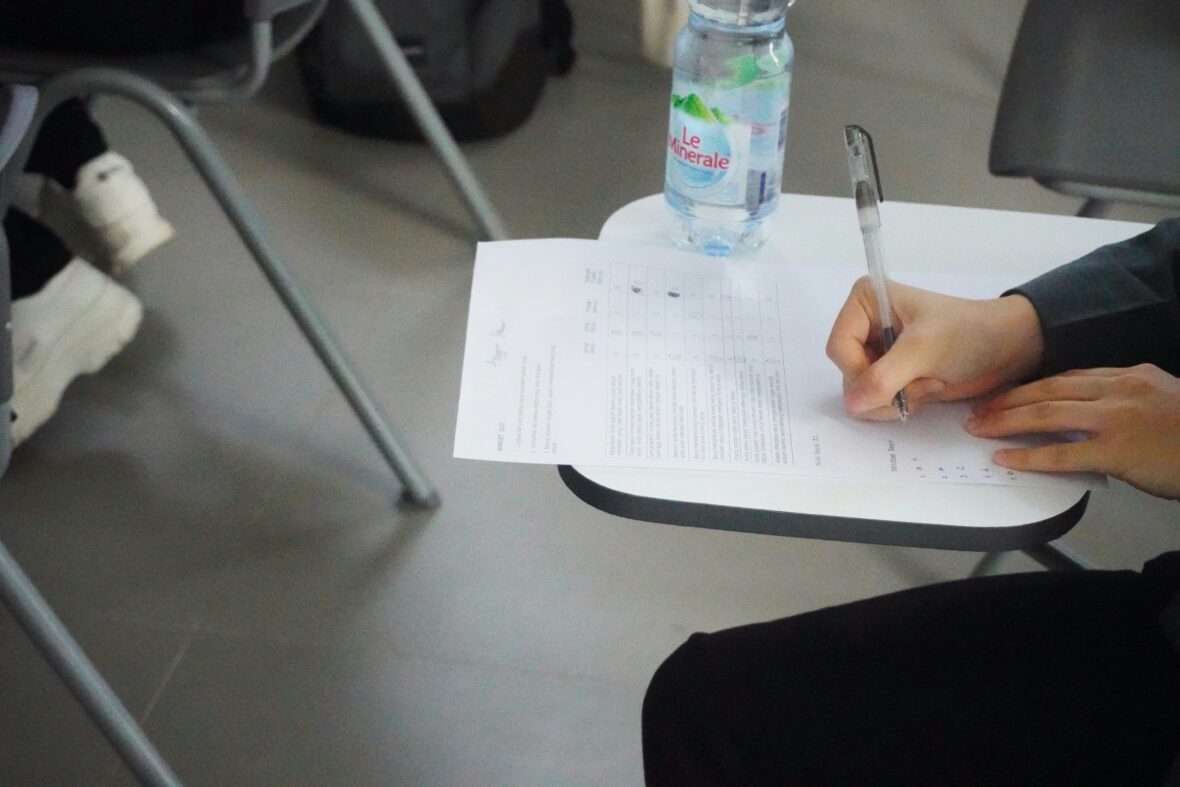The most common survival strategy for universities, unfortunately, is to introduce chargeable teaching-related programmes, thus taking advantage of the desire of candidates to obtain degrees at all costs.
Hence, there are numerous sandwich, pre-degree, and diploma programmes where candidates pay commensurate fees, distinct from regularly funded undergraduate programmes. The article examines the Nigerian University system.
However, it is the innovation aspect of science and technology that makes lives more abundant.
It is science and technology (S&T) that generate innovative products for the marketplace. But this takes planning, and the results, though fundamental, are not achievable in a short time.
Embracing Scientific Knowledge
Sound scientific knowledge is fundamental to addressing the critical issues of economic transformation and globalisation, reduction of unemployment, underemployment, poverty, hunger and disease, and the sustainable use of natural resources facing the world today.
The world is changing at a rapid pace, driven by science and technology, and the challenge of integrating science and technology into development is getting increasingly complex.
Let us, for example, reflect on the controversies over the development of bio-fuels, embryonic stem-cells, nuclear fuels, GM seedlings and the use of nanoscience/nano-technologies for remote dispensing of antidotes and similar drugs to patients remotely.
As for the case of biofuels, the question is whether the benefits of such fuels will be able to compensate for decreased food production.
As the farmlands will now be largely devoted to the production of crops for biodiesel, with subsequent food shortages and thus increasing food prices.
The new search is to use farm wastes, Jatropha curcas, for biofuels. The above situations can be similarly analysed with the attendant difficult economic and moral issues.
In the 21st century, the accumulation of scientific knowledge and its technological applications are accelerating at a dizzying rate, enabled in large part by ever more powerful computers.
And lightning-fast communications, such that the product life span is less than 12 months before obsolesce.
The internet has revolutionised the meaning of time and space, such as we have literally conquered space, but the matter of time is still a work in progress. A great leap in medical science enabled by IT is the decoding and manipulation of DNA.
The above discoveries were facilitated mainly by universities at the apex of learning institutions that have an essential role to play in building the necessary S&T capacities. These are the mediating between the political and industrial spheres of national life.

Reverse Engineering
A practical way to do this is to do what is generally referred to as reverse engineering. It is these institutions that must provide the road map to circumvent those roadblocks to indigenous technology enhancement necessary for driving innovation and development of the nation.
The research facilities must orchestrate the brain power of the faculty, take responsibility for training the new generation of talents and participate in the transformation of the nation’s S&T base.
Science brings imagination to theoretical speculations as well as to practical problems and critical decisions, allowing people to analyse the present (and future) situations, make sounder choices, and invest their resources more wisely.
Nigerian Academy of Science and Other Academies
We need a coherent national S&T strategy with a framework developed in consultation with the Nigerian Academy of Science and other academies to specify the national priorities for research and development with the appropriate funding commitment (at about 1.5 per cent of the GDP annually).
This includes merit-based support for basic science and recognises the need for higher-level training to develop, as much as possible, natural competence in selected frontier areas of science and technology.
These are most suitable for sustainable economic development and social well-being. This is the path that China took some 50 years ago.
Higher education institutions educate and train a new generation of S&T talent, and perform research and development; therefore, these are critical for expanding national S&T capacities.
Using science to address the challenges of development means carrying out relevant research, putting the results into practice through technological innovation and generally using them to inform public policy.
The nation must gradually move away from being a consumer to being a producer. The obstacles (including the WTO GATT Agreements.
The WMO Montreal Protocols and others, to which we have been committed without our clear understanding of the implications, and high-level discussions on climate change.
It must be carefully reviewed, revised, and those that are inimical to the nation must be abrogated. These are the challenges and opportunities for the universities to make an impact on society.
Learning and Character
What has been and what remains as the stake of universities is this quest for excellence? It is in the production of learning and character of young scientists and technologists who will improve the capacities of the S&T human pool.
Higher institutions are set up essentially for the ‘public good’ in respect of ownership, be it public or private. The key attributes are: Research (R), Knowledge propagation/teaching (K), and community service/innovation (I).
Research is the process of creating new knowledge or new insights into knowledge, or unlocking knowledge. Knowledge is generally defined as high-quality, preferably policy-relevant information.
Both in both codified and tacit forms, often location-specific. Innovations are new and renewed products and processes outcomes through the use of knowledge.
It is important, therefore, to understand that these institutions are not set up simply as diploma and certificate mills to produce students in learning centres, but primarily to do research, disseminate findings and propagate innovation through society.
The core values must include excellence, transparency, integrity, merit, and relevance.
These emerging best practices are now classified under the broad core responsibilities, including research and development, teaching and community service.
Research and Development
- Every university should have a research policy to be backed up with local grants and supported by funds from the ETF Research Funds, the National Research Foundation, as well as bilateral and international organisations.
- Make research relevant to society and community needs.
- Develop innovative funding ideas through partnering with industries and the organised private sector.
- Invite annually, as a policy, a well-known academic/scholar as an external examiner from one of the identified best 200-ranked universities in the world.
- Advertise for and recruit globally for academic positions.
Teaching
- Leverage on e-learning facilities to update the learning system and access to the various e-teacher activities.
- Update and re-align the curriculum to reflect the requirements of employers through the introduction of entrepreneurial programmes for all students.
- Ensure that the Academic Boards of Studies consist of knowledgeable and enthusiastic members, including the community leaders.
- Embark on a deliberate strategy to recruit and retain world-class scholars. Academic staff salaries need not be uniform even within and between staff grades.
- Establish an institution-wide committee of the academic board to oversee the quality and standards of instruction.
- Introduce a co-operative education system for all professional disciplines.
Community Services
- Enthronement of accountability and transparency in the institution management, including fundraising and endowment activities.
- Sustain peace on campus through constant dialogue with the various unions and cordial relationships with the host communities by meeting their expectation. (Corporate Social Responsibility –CRS, to community schools, hospitals and other public projects must annually be provided for in the budget).
- Networking on special thematic areas within and outside the country and interface with other non-educational institutions and organisations.
- Establishment of a veritable consulting service.
- Establishment of Research, Development and Technology Parks to showcase continuously academic staff’s enduring works.
Every university must engender its own unique character in sustaining the academic culture, in terms of inquisitions and dogged search for the truth.
It is important to encourage students to organise themselves in Science and Nature Clubs, Literary Societies, Volunteer Groups, and so on.
It is also important to encourage our elected members of the Senate, House of Representatives, and the State Assemblies to mentor/engage students individually (from the constituency or other funds) during vacation periods.
Conclusions
The Nigerian university system, in the past 50 years since independence, has traversed from a pinnacle of excellence and ecclesiastical tower of knowledge through a plateau of indifference.
And sheer tolerance to outcomes/products to the current state of rejuvenated interest by the various publics that are stakeholders in the university system.
There is an urgent need to revitalise higher education in Nigeria through polices and reforms, programmes, pedagogy, and teaching tools, training of teachers, as well as education research.
This paper takes a backwards glance at the Nigerian University System, examining the risk factors therein and prescribes some innovative survival strategies for moving forward, thereby synergising best practices in the top-class universities.
The paper describes the critical role of education in development and especially the need to inculcate science, technology and innovation as the nucleus of national re-orientation and advancement.
Poverty Cycle
It is our higher institutions that are expected to be at the vanguard of the national moral rebirth and lift us out of the ‘poverty cycle’ as ‘when poverty increases, honesty decreases.’
In enthroning science as the key to inventing a better society, universities have an essential role to play in building the capacity for high-quality education and training in agriculture/food security, engineering and health.
We have also provided a shortlist of best practices that universities need to adopt to attain a world-class standard and be appropriately ranked.
Research Policy
All universities must develop a research policy with an Agenda with the same vigour and elaboration that attended the erstwhile articulation of strategic plans.
The research agenda should be derived from a National Vision on Higher Education, Science, Technology and Innovation. You can read further on this page.










